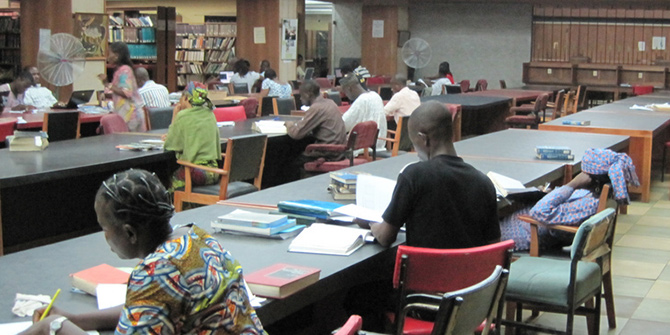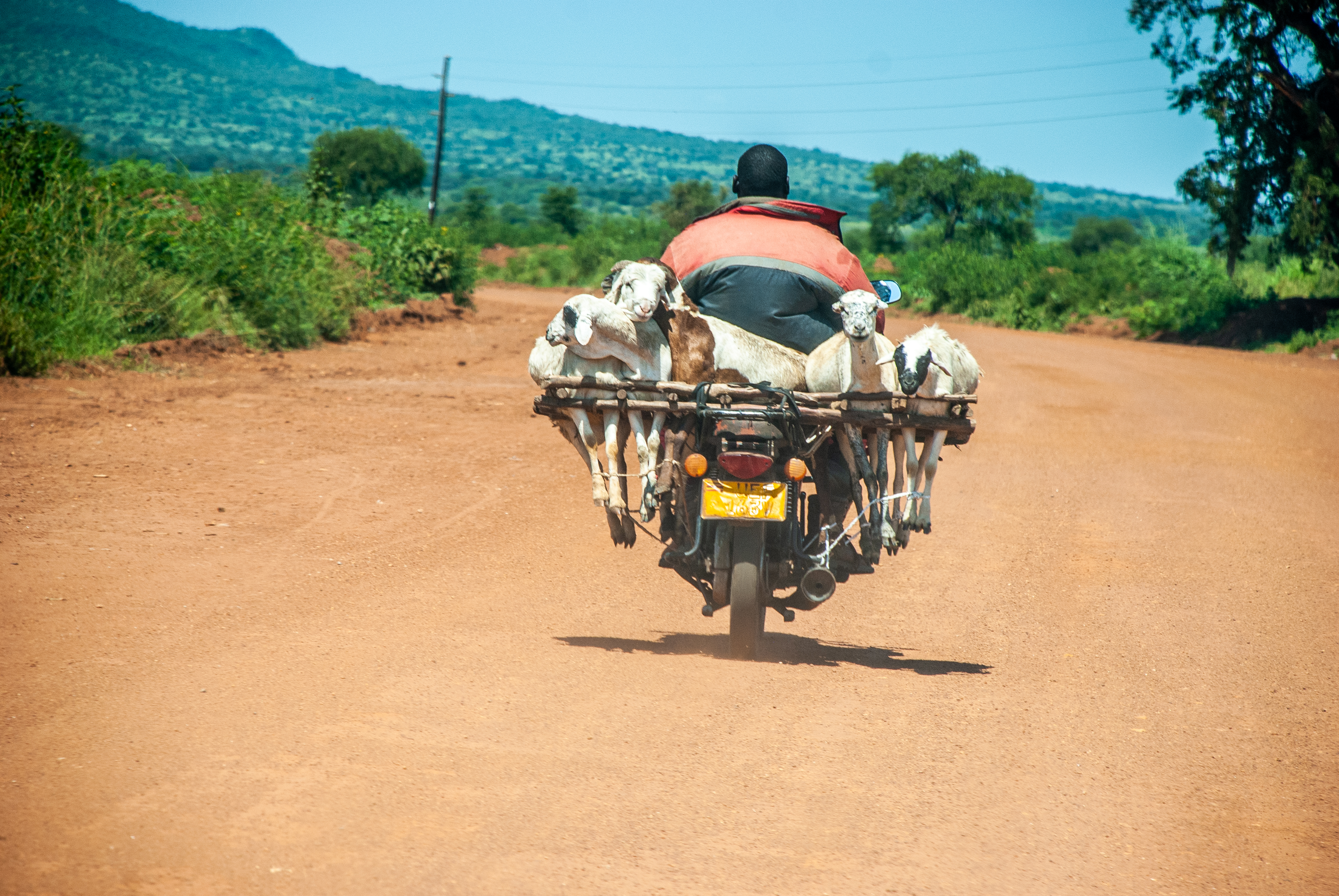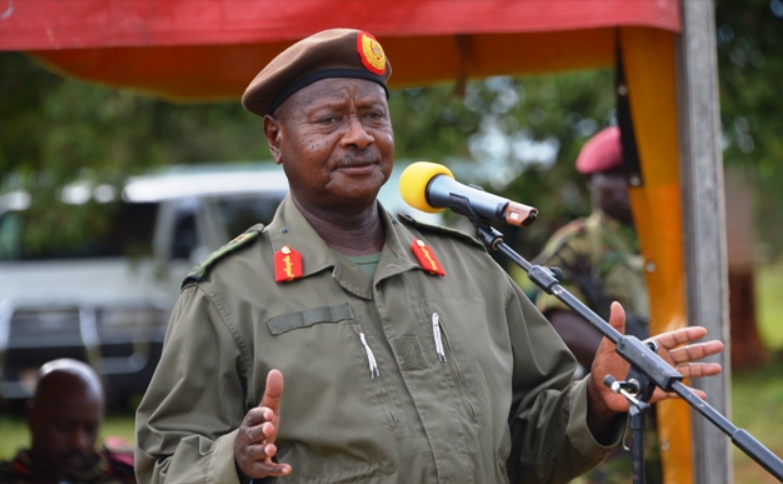As northern Uganda continues to recover gradually from the LRA war, peace and youth interventions using sports are playing a vital role. Francis Aloh, a former Ugandan football star and LSE researcher working with the Centre for Public Authority and International Development, has been studying a charity’s efforts in the region, exploring whether the game really can meet its aims of creating dialogue between groups previously at war, and empower the community’s traumatised members.
It has been said that football can heal the social wounds of war and be a force for reconciliation, especially among young people. But is that really true? After all, isn’t two teams battling for victory an inherent contradiction to the idea of bringing people together?
Speaking to football officials and managers in the post-war district of Lamwo in northern Uganda, it became clear that football encourages a competition that is healthy, teaching team work, leadership, promoting gender equality and, above all, fighting stigma. The way in which competition between teams was managed is the true determiner of just how unifying sport can actually be.
Football certainly worked for me – as a player, I travelled to so many countries, got a decent salary, and became well known in the region and the country at large all thanks to football. It is a really unifying and stress reducing game. Speaking to different youths in Lamwo about what football meant to them during their time with the sports charity Athletes for Africa (A4A), the dominant response was one of an ‘escape’, a ‘community’ and a way to forget about ‘the bad things that were happening to people’ during the war.
The memories of the atrocities of war are far from being healed. So A4A set out to build a new facility that would offer sports, a cultural performance centre, other training facilities and a variety of youth services. The result was a Sports Academy that develops the skills of talented children and youth as well as those involved in professional sport, enabling the northern Districts to have a presence in national and international competitions, focusing mainly on soccer, basketball, netball and athletics.
Meanwhile, work in rural areas throughout the north tried to assist youth groups in developing recreation spaces and facilities that would benefit their whole communities, and hugely increase opportunities for all youth to participate in community sports and cultural activities. Participation in competitions would involve contact and dialogue between groups that were previously at war, and opportunities for those with talent to be supported in developing their skills. This particularly developed their leadership and income-generating potential, while supporting the youth’s troubled and traumatised members by empowering them as agents for social change. Finally to engage directly with issues of reconciliation, A4A linked its projects to facilitation of communities to create memorials to those who suffered and died in the war.
After the A4A project, founder Adrian Bradbury moved on to elite sports and started the Football for Good (FFG) Academy in northern Uganda. FFG is Uganda and East Africa’s only full-time residential youth football academy and scholarship program running to date.
To get a flavour of their work, I asked to accompany a prospective football trainee for his trial. Ogen Ronald’s parents are peasant farmers from Lokung sub-county, Lamwo District and felt the full brutality of the war: Ogen’s father’s parents and two siblings were abducted and forced to kill themselves by LRA rebels – his father only escaped with his other brother because they were studying in Gulu.
Ogen’s family were members of a youth group, ‘Gum pe-rom’, formed during the project, which continued even after A4A left. Football was part of the reconciliation. It was widely believed that an LRA commander from a nearby sub-county had ordered the killing of Ogen’s grandparents and many others, and A4A deemed football a way to bring these two sub-counties together in fair competition, especially between the youth, instead of retaliation or taking revenge for their loss.
Both parents were active sports personalities in the group and they became a family. Ogen Ronald is one of their three children, and he excels at football.
Ogen was offered a trial with FFG academy in Kitgum, a neighbouring District to Ogen’s Lamwo. I needed to see for myself so I accompanied Ogen to the trial.
At this point you are probably expecting the classic fairy story, where Ogen plays like a wonder boy and is promptly accepted into the Academy. Sorry, that’s not how it happened. At the first attempt Ogen, a scintillating left footer, was tired after travelling a whopping 120km through rough terrain on the same day to the ground. That, coupled with his fear of the big occasion and lack of football shoes, made him shy away from exhibiting all his skills.
But the future still looks bright, because the FFG coaches have said they will take another look at him during the second trials this month (May) before they make a final decision. On getting back home to his village, Ogen had to explain to his father how he had blown the chance to study in a good school and access world class football training with the only full time residential academy in the whole country. His father saw the frustration on his son’s face. But the boy is so optimistic with the second chance given to him to showcase his talents. We’ll let you know how he fares.*
Conclusion: sport isn’t a magic wand that can wish away all pain and injustice, but Ogen’s second chance may be a sign of what it can achieve – fingers crossed.
*Since publication, Ogen’s second, regional northern trial was a success, selected from five out of 20 athletes in a residential camp in Gulu. He is now heading for the last trial in Kampala on 22 May 2019, where athletes from the four regions will compete for the few spots to enter the FFG Academy.
Photo: Flickr, Franx’, Creative Commons.
Francis Abonga has worked on the major research projects ‘Land Conflict Mapping Tool for the Acholi Sub-Region’ and the ‘Joint Acholi Sub-regional Leaders Forum Customary Land Survey’. He is a trainer on fieldwork courses run by Ghent University on ethnographic data and complex data entry analysis. Francis has also worked as a professional footballer in Uganda, Zimbabwe, Nepal and Vietnam.
The views expressed in this post are those of the author and in no way reflect those of the Africa at LSE blog, the Firoz Lalji Centre for Africa or the London School of Economics and Political Science.






Ogen have faith all will be well
Very Goog Abonga, Congratulations on that good research